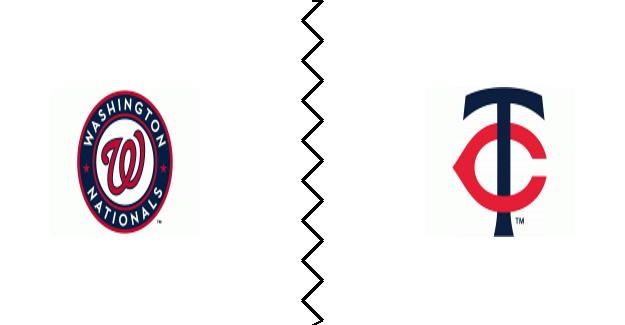2025-07-26 Nationals at Twins Matchup Preview

The Minnesota Twins look to capitalize on their home-field advantage as they face the Washington Nationals in an interleague contest.


Starting Pitcher Matchup
Mitchell Parker is scheduled to start for the Washington Nationals, aiming to provide stability to their pitching staff. The Minnesota Twins will counter with Joe Ryan, hoping to leverage his experience and pitch repertoire to control the game. Both pitchers will be key to their team's success, and their ability to command the strike zone will be crucial.
Washington Nationals Offensive Outlook
The Washington Nationals' offense, with an average age of 27, comes into this game having posted a team total of 7.0 Wins Above Replacement. Their offensive strategy will likely focus on getting runners on base and manufacturing runs, capitalizing on any mistakes made by Joe Ryan. While their offensive statistics may not be eye-popping, their ability to string together hits and take advantage of scoring opportunities could present a challenge for the Twins' pitching staff. Their success will hinge on their ability to maintain a high batting average on balls in play.
Against Ryan, the Nationals will need to focus on patience at the plate. Ryan's effectiveness often stems from inducing quick outs and disrupting hitters' timing. By working deep into counts and forcing Ryan to throw more pitches, the Nationals can increase their chances of capitalizing on any fatigue or mistakes. Key hitters will need to adjust their approach based on the pitch selection and movement, concentrating on driving the ball into gaps and avoiding easy outs.
Minnesota Twins Offensive Outlook
The Minnesota Twins' offense, slightly older with an average age of 28, enters the game with a team total of 10.8 Wins Above Replacement. The Twins' offensive approach often relies on power hitting and capitalizing on extra-base hits, leveraging their team's slugging percentage. While they may be prone to strikeouts, their ability to drive the ball deep into the outfield can quickly change the complexion of a game. Against Parker, the Twins will look to exploit any vulnerabilities in his pitch command and capitalize on opportunities to score early and often. How the Twins perform with runners in scoring position will be a key factor in determining the game's outcome.
The Twins will need to concentrate on exploiting Parker's weaknesses and jumping on hittable pitches early in the count. Parker will need to be able to command his fastball and locate his secondary pitches in order to keep the Twins lineup off balance. The Twins' hitters will need to be disciplined and patient, waiting for pitches they can drive into the gaps or over the fence. Their success will depend on their ability to make hard contact and put pressure on the Nationals' defense.
Pitching and Defensive Analysis
Mitchell Parker's success hinges on his ability to command his pitches and vary his velocity to keep hitters off balance. Parker will need to rely on his ability to induce weak contact and avoid giving up big hits. The Washington Nationals' defense must be prepared to make plays behind him, turning ground balls into outs and preventing runners from advancing on stolen bases. The Nationals' defensive efficiency will be crucial in limiting the Twins' scoring opportunities and keeping the game close.
Joe Ryan's effectiveness on the mound is built on his ability to locate his fastball and mix in his secondary pitches to disrupt hitters' timing. Ryan's success depends on his ability to control the strike zone and avoid giving up walks. The Minnesota Twins' defense must be ready to support him by making routine plays and preventing runners from advancing on errors. The Twins' defensive positioning and communication will be vital in limiting the Nationals' scoring chances and maintaining a lead.
Prediction
Given the Twins' slightly more potent offense and the advantage of playing at home, they appear to have a slight edge in this matchup. Joe Ryan's experience and pitch mix could prove challenging for the Nationals' hitters, while the Twins' lineup will look to exploit any vulnerabilities in Mitchell Parker's command. However, the Nationals' ability to manufacture runs and capitalize on opportunities should not be underestimated.
Nationals 3 Twins 5